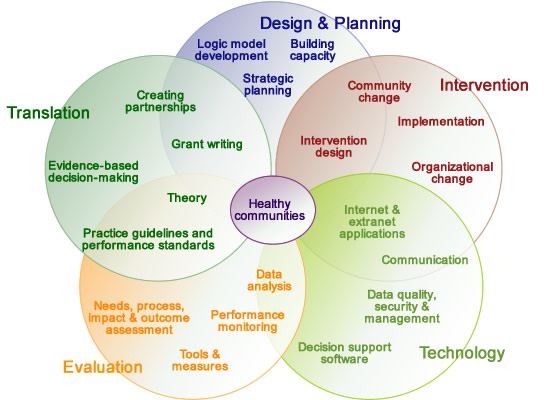| |
CORE SERVICES
Transtria's 5 Core Service Areas
(mouse-over the service areas for detailed definitions)
 
|
Logic model development: We create planning tools that
link goals, objectives, activities, resources and evaluation. |
|
Building capacity: We work to identify and mobilize
organizational and community assets (resources, infrastructures, relationships,
and operations). |
|
Strategic planning: We engage partners in a planning process
to coordinate efficient and effective activities, efforts and resource utilization. |
|
Intervention design: We guide the design, planning, development,
and selection of appropriate intervention strategies to meet partner needs. |
|
Implementation: We provide tools and resources for ensuring
that activities are accomplished as planned. |
|
Organizational change: We support organizations that seek
to change their structure, enhance their capacity, or improve their performance. |
|
Internet & extranet applications: We develop dynamic
applications for information sharing, performance monitoring and evaluation. |
|
Communication: We use innovative communication strategies
to support information exchange relevant to a wide variety of audiences. |
|
Data quality, security & management: We follow established
guidelines for data operations to protect the integrity of information transfer
and storage. |
|
Decision support systems: We tailor computerized information
systems to enhance organizational or community decision-making activities. |
|
Data analysis: We design and conduct quantitative and
qualitative data analysis so that partners can share the impact of their
efforts with others. |
|
Needs, process, impact & outcome assessment: We evaluate
organizational or community needs, planning efforts and interventions using
innovative methods. |
|
Practice guidelines & performance standards: We work
with partners to identify standards for practice based on scientific evidence
and practical experience. |
|
Theory: We apply social science theories to enhance change
efforts for individuals, groups, organizations or communities. |
|
Evidence-based decision-making: We promote the use of
research- and practice-based evidence to guide the planning and prioritizing
activities of our partners. |
|
Creating partnerships: We encourage collaborative approaches
that involve multidisciplinary partners and recognize their unique contributions. |
|
Grant writing: We provide guidance and support for partners
seeking funding from government institutions and foundations. |
|
|